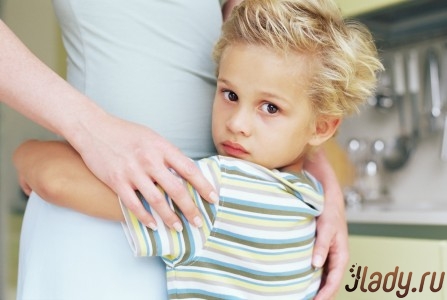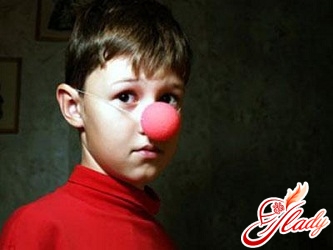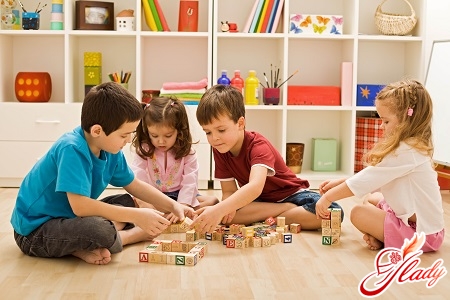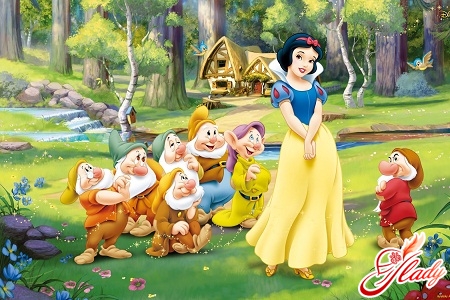 We are all afraid of something and we are sure that our fearsare quite reasonable. But when a child turns pale at the sight of a clown, cries during a routine check-up at the dentist, or clings to your hand when meeting a dog walking peacefully on a leash, it is difficult for us to understand why he is so afraid. Perhaps you are one of those lucky ones who boldly sits in the dentist’s chair, gives blood without fear, and has nothing against regular medical check-ups. But when it was time for your little one to visit the dentist for the first time, he began to cry and wriggle, trying to get out of the “scary” chair. Where did this fear come from? And how should we behave in such a situation: scold the coward for lack of courage, launch into a lengthy explanation about the painlessness of such procedures, or postpone a visit to the dentist indefinitely? A child’s fears, which may be perceived as annoying hindrances, are in fact part of his development and adaptation. As he grows, they change, reflecting the changes taking place in his life. The baby begins to crawl, learns to walk, talk, every day of his life brings something new. Everything happens so quickly! And a small child needs to cope with all the changes in mental and physical development, simultaneously absorbing a lot of information. But some situations turn out to be too difficult for him, and then he may experience anxiety and fear. But you are there and can always cheer him up and comfort him.
We are all afraid of something and we are sure that our fearsare quite reasonable. But when a child turns pale at the sight of a clown, cries during a routine check-up at the dentist, or clings to your hand when meeting a dog walking peacefully on a leash, it is difficult for us to understand why he is so afraid. Perhaps you are one of those lucky ones who boldly sits in the dentist’s chair, gives blood without fear, and has nothing against regular medical check-ups. But when it was time for your little one to visit the dentist for the first time, he began to cry and wriggle, trying to get out of the “scary” chair. Where did this fear come from? And how should we behave in such a situation: scold the coward for lack of courage, launch into a lengthy explanation about the painlessness of such procedures, or postpone a visit to the dentist indefinitely? A child’s fears, which may be perceived as annoying hindrances, are in fact part of his development and adaptation. As he grows, they change, reflecting the changes taking place in his life. The baby begins to crawl, learns to walk, talk, every day of his life brings something new. Everything happens so quickly! And a small child needs to cope with all the changes in mental and physical development, simultaneously absorbing a lot of information. But some situations turn out to be too difficult for him, and then he may experience anxiety and fear. But you are there and can always cheer him up and comfort him.
Monsters (from 3 to 6 years)
Why are children afraid of monsters?For a small child, reality and fantasy exist in the same space. In his mind, there is no clear boundary separating these two worlds. Monsters may lie in wait for him behind the closet or under the bed, but they disappear as soon as you enter the room or turn on the nightlight. The moment a child moves to his own room or from a crib to a “big” room, he may be overcome by an acute feeling of loneliness and abandonment. He experiences fear of growing up and the need to be independent, but he cannot comprehend it and express it in words. In order to show fear, you need to find a form, an object for it, and this form is most often monsters, ghosts, villains from fairy tales or cartoons. These horror stories help the baby show you that something is bothering him, that he is afraid. How to help? Do not devalue the baby's fears with phrases like: “It's all fiction!” or “Don't be silly!” Don't shame him or call him a coward: he won't be less afraid, but he will learn to hide his feelings so as not to be ridiculed. Yes, there is no one under the bed, but his feelings are very real. Don't assure him that the monster has already left: this will not calm your little one down, but will only strengthen his fears. After all, if the terrible creature has disappeared, it means that it still existed! Try to understand what is really bothering the child, and ask him what could help him be less afraid. Perhaps he will ask you to sit with him, or leave a night light on, or give him his favorite toy. Tell him that he seems to be really scared now, but his fear will gradually pass, and you will help him with this. This way the child will feel that, despite the changes in his life, he is still connected to you by strong ties.
Doctors (from 1 year to 7 years)
Why are children afraid of doctors?Sitting in the dentist's chair or feeling the cool stethoscope, a child feels vulnerable. He does not know what is going to be done to him. Strange hands touch his body, and this is experienced as an invasion of personal space. And medical instruments look frightening. Most children who have undergone painful medical procedures or have been hospitalized are afraid of doctors. But even children without such negative experiences can be afraid of the white coat, stethoscope or mirror of the ENT doctor and make a noise. How to help? First, explain to the child what a doctor is for. He wants the best for him and helps him maintain health. Before visiting the doctor, play hospital, give your child a children's medical kit and offer to use it to examine a teddy bear or become a patient yourself. When going to the doctor, take a toy with you. While waiting for the appointment, encourage your little one: “Yesterday we treated the teddy bear, and today you are going to the doctor.” It is very important that during the examination the doctor informs the child about his subsequent actions. Remember your first visit to the gynecologist - you wanted to know about all the manipulations to prepare yourself both mentally and physically, right? The same thing happens with your child. The dentist will calm the little one if he says, “Now I am going to look at your teeth to make sure they are clean and healthy.” If the child managed to stoically survive the visit to the doctor, be sure to pay attention to this: “Look, you were almost not afraid anymore, I am very proud of you.”
Darkness (3 to 7 years)
 Why are children afraid of the dark?When a child does not see what surrounds him, he seems to lose control over what is happening. Only vague shadows remain from familiar objects, and any rustle seems loud and frightening in the silence of the night. Darkness is associated in the minds of people with evil, monsters and villains live in the darkness of caves, crypts, abandoned castles. This is a deep fear, reflecting a person's fear of the unknown, of loneliness, of death. Therefore, many otherwise fearless children are afraid of the dark. How to help? The simplest and most reasonable way to help a child overcome the fear of the dark is to leave a small light in his room. The baby will feel safe, and his sleep will be deep and calm. Ask your child about what exactly scares him in the dark. Talking about his fantasies, he will certainly feel relieved, meeting with your understanding and sympathy. In the end, the time will come, and the child will understand that there is no danger, and sleeping in the dark is much more comfortable.
Why are children afraid of the dark?When a child does not see what surrounds him, he seems to lose control over what is happening. Only vague shadows remain from familiar objects, and any rustle seems loud and frightening in the silence of the night. Darkness is associated in the minds of people with evil, monsters and villains live in the darkness of caves, crypts, abandoned castles. This is a deep fear, reflecting a person's fear of the unknown, of loneliness, of death. Therefore, many otherwise fearless children are afraid of the dark. How to help? The simplest and most reasonable way to help a child overcome the fear of the dark is to leave a small light in his room. The baby will feel safe, and his sleep will be deep and calm. Ask your child about what exactly scares him in the dark. Talking about his fantasies, he will certainly feel relieved, meeting with your understanding and sympathy. In the end, the time will come, and the child will understand that there is no danger, and sleeping in the dark is much more comfortable.
Thunderstorm (2 to 7 years)
Why are children afraid of thunderstorms?A loud and unpredictable roar can scare anyone! Growing up, children begin to accumulate information from the news, films, TV shows and stories about which natural phenomena are truly dangerous. But the fear of thunderstorms also has an archaic element, inherited from our ancestors, who considered natural phenomena to be powerful and angry divine forces. Therefore, even in the apparent safety of a house or apartment, a child can be scared as if a thunderstorm were a real danger to him. How can you help? It happens that adults themselves are afraid of thunder and lightning. You can tell your child: “How loud! I even flinched from surprise. When the thunderstorm goes away, there will be no more thunder.” And then invite your little one to wait for the thunderstorm to end together: sit comfortably on the couch, hug your baby and watch this powerful action. You can express admiration for the power of nature: “Wow! What a bright lightning!” “How she illuminated everything!” to switch the child’s attention from fear to curiosity.
New Nanny (5 - 10 months to 5 years)
 Why are children afraid?For a child, anxiety around someone unfamiliar is a way to show that he understands that this person is not mom or dad. It's not that the nanny somehow scares the child, but that the baby only trusts close people whom he has known for a long time. But there come times when you have to deal with "strangers" who look, speak and smell different from their parents. And this is a reason for concern, but quite natural. You don't want your child to trust all strangers, do you? How can you help? Regardless of the child's age, you should not leave him with a nanny too quickly. Try to make this transition gradually: invite the nanny home and spend time together. When the child gets used to the new person a little, you can leave them alone and do some housework yourself. If the baby and the nanny have become friends and you are sure that they are comfortable together, you can leave the house. However, remember that you should not do this secretly, without saying goodbye to the baby. Be calm but firm. An older child can be explained: "Mom is leaving now, but she will be back soon. And while I am gone, the nanny will play and walk with you."
Why are children afraid?For a child, anxiety around someone unfamiliar is a way to show that he understands that this person is not mom or dad. It's not that the nanny somehow scares the child, but that the baby only trusts close people whom he has known for a long time. But there come times when you have to deal with "strangers" who look, speak and smell different from their parents. And this is a reason for concern, but quite natural. You don't want your child to trust all strangers, do you? How can you help? Regardless of the child's age, you should not leave him with a nanny too quickly. Try to make this transition gradually: invite the nanny home and spend time together. When the child gets used to the new person a little, you can leave them alone and do some housework yourself. If the baby and the nanny have become friends and you are sure that they are comfortable together, you can leave the house. However, remember that you should not do this secretly, without saying goodbye to the baby. Be calm but firm. An older child can be explained: "Mom is leaving now, but she will be back soon. And while I am gone, the nanny will play and walk with you."
Dogs (from birth to 7 years)
Why are children afraid of dogs?Even though dogs have been domesticated for a long time, they are still animals, and perhaps children feel the animal nature of these familiar creatures more strongly than we adults. But this is a “useful” fear: many dogs bite, and you certainly don’t want your child to run to pet any unfamiliar dog. This fear may also be associated with the fact that you yourself are afraid of dogs and your child feels it, or with some unpleasant incident. Dogs can be unpredictable, and even their violent expression of joy can frighten a child. How can you help? This fear is quite natural, but when a child experiences horror every time he sees a dog, this can prevent him from feeling free on a walk or when visiting. If the baby is very scared, do not offer him to make friends with a dog, even the kindest and calmest one. Start from afar. Buy books about dogs with good illustrations, show your child what they are like, tell them what dogs can do, how devoted they are to their owners, playful, affectionate and can be real protectors. Give your child toy dogs, play with them. Introduce your little one to a cute little puppy that lives with friends or maybe with neighbors. But explain that you can only touch animals with permission and under no circumstances should you pull them by the tail or ears, shout or wave your arms while nearby.
Clowns and animators (from 2 to 7 years)
 Why are children afraid of clowns?Is your little one running away in terror from the entertainers at a party and hiding behind you when they see clowns and made-up performers? Of course, because their faces are almost invisible under the mask or thick makeup, and the child is frightened by their “inhuman” appearance. It is difficult to read emotions on a painted face, and the child cannot understand what this person is going to do, whether he is friendly. In addition, clowns and jesters behave very strangely: they have unnatural gestures, loud, harsh voices and an unusual manner of speech. How to help? If your child shies away from clowns and entertainers, and you are going to a party or a circus, you need to honestly tell him what awaits him there. If he is still scared, it is better to take him aside and calm him down. Often the problem is that parents depend on the opinions of strangers and do not take into account the feelings of the child. Do not be embarrassed because - because your child cried at a party or at the circus, he is not obliged to have fun just because adults think it is fun. Ask the little one what exactly he is scared of, and promise that if he does not get used to it, you will leave together. This is necessary so that the child feels that he is given time to get used to it, and is given a choice whether to be in this place. This way you will help him take control of the situation, and then the fear may retreat. We recommend reading:
Why are children afraid of clowns?Is your little one running away in terror from the entertainers at a party and hiding behind you when they see clowns and made-up performers? Of course, because their faces are almost invisible under the mask or thick makeup, and the child is frightened by their “inhuman” appearance. It is difficult to read emotions on a painted face, and the child cannot understand what this person is going to do, whether he is friendly. In addition, clowns and jesters behave very strangely: they have unnatural gestures, loud, harsh voices and an unusual manner of speech. How to help? If your child shies away from clowns and entertainers, and you are going to a party or a circus, you need to honestly tell him what awaits him there. If he is still scared, it is better to take him aside and calm him down. Often the problem is that parents depend on the opinions of strangers and do not take into account the feelings of the child. Do not be embarrassed because - because your child cried at a party or at the circus, he is not obliged to have fun just because adults think it is fun. Ask the little one what exactly he is scared of, and promise that if he does not get used to it, you will leave together. This is necessary so that the child feels that he is given time to get used to it, and is given a choice whether to be in this place. This way you will help him take control of the situation, and then the fear may retreat. We recommend reading:







